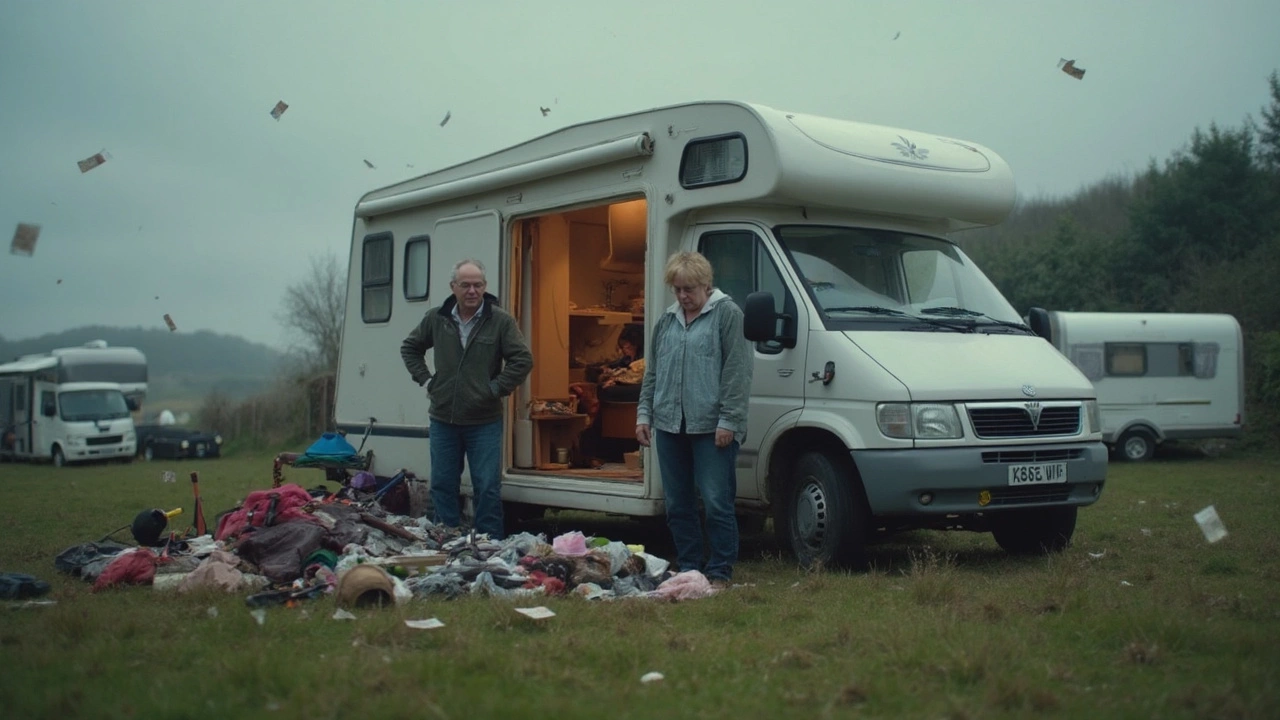Costs of RV Living – What You’ll Actually Spend on the Road
Thinking about swapping your apartment for a motorhome? Before you hit the highway, you need a clear picture of the money side. RV living isn’t just about freedom; it’s a budget that can surprise you if you’re not prepared.
In this guide we’ll break down the biggest cost buckets, show where hidden fees hide, and give you simple tricks to stretch every pound. By the end you’ll know exactly how much you need to set aside each month and where you can trim without losing the fun.
Big Cost Categories
Fuel – This is usually the top line item. A typical Class C motorhome gets 8‑12 mpg, so long highway miles can add up fast. Use a fuel‑price app, plan routes with low‑traffic roads, and keep your tires properly inflated to squeeze out a few extra miles per tank.
Campsite Fees – Hookups range from £15‑£50 per night depending on location and amenities. If you mix boondocking (free spots) with paid sites, the average nightly cost drops dramatically. Look for sites that include electricity, water, and waste‑dump in one price to avoid surprise add‑ons.
Insurance – A comprehensive motorhome policy can be £500‑£1,200 a year. Factors like mileage, vehicle value, and where you store the RV affect the premium. Shop around annually and consider bundling with your car or home insurance for a discount.
Maintenance & Repairs – Budget at least 5‑10% of the RV’s purchase price each year for routine service, tire changes, and unexpected fixes. Having a trusted mechanic who knows motorhomes can save you hours of hassle.
Utilities & Supplies – Propane for cooking and heating, fresh water, and batteries all need topping up. A typical month might see £40‑£80 for propane and another £30‑£60 for electricity if you’re using a generator or a campsite hookup.
Food & Groceries – Cooking in a motorhome can be cheaper than eating out, but you’ll still need a budget for groceries, coffee, and occasional treats. Planning meals ahead and buying in bulk can keep this line low.
Tips to Keep Your RV Budget in Check
1. Plan Your Trips Around Off‑Season Deals. Campsites drop rates by up to 30% in shoulder seasons. You’ll also avoid crowds and have more flexibility with parking.
2. Use Membership Discounts. Organizations like the Caravan Club or local motorhome clubs offer reduced campsite fees and fuel deals. Sign up and keep the membership card handy.
3. Track Every Expense. A simple spreadsheet or budgeting app lets you see where money goes. Spotting a pattern—like frequent generator use—helps you adjust habits.
4. Learn Basic DIY Repairs. Changing a fuse, tightening a loose bolt, or checking tyre pressure yourself can save £50‑£200 per fix.
5. Consider a Hybrid Power Setup. Solar panels on the roof reduce reliance on campsite electricity and fuel‑run generators. Even a modest 200‑watts system can cover lights and small appliances.
6. Choose Campsites With Full Amenities. Paying a bit more for a site that includes water, electricity, and waste‑dump can be cheaper than paying separately for each service.
7. Sell Unused Gear. If you’ve got a spare kayak, bike, or extra furniture you never use, sell it. The cash adds up and your RV stays lighter, which can improve fuel economy.
Bottom line: RV living can be as pricey or as affordable as you make it. By understanding the main cost drivers and applying a few smart habits, you’ll keep the adventure alive without blowing your budget. Ready to hit the road with a clear wallet plan? Pack, budget, and enjoy the freedom that only a motorhome can give.
Unexpected Downsides of Living in an RV: What You Need to Know Before Hitting the Road
Explore the real drawbacks of RV life—from hidden costs to space problems and maintenance headaches. Don’t let wanderlust blind you to the pitfalls.
